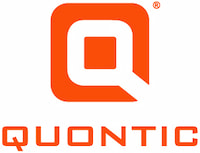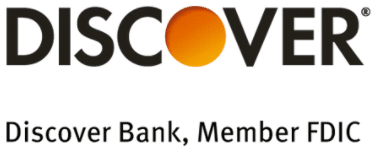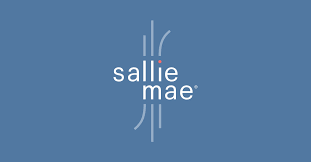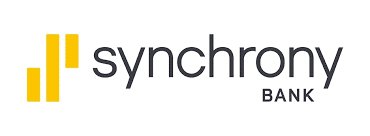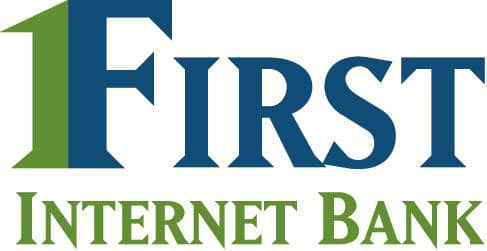The savings offers that appear on this site are from companies from which MoneyCrashers.com receives compensation. This compensation may impact how and where products appear on this site (including, for example, the order in which they appear). MoneyCrashers.com does not include all savings companies or all savings offers available in the marketplace.
No investment or savings vehicle is entirely without risk, but certificates of deposit (CDs) offer more security and predictability than most.
With fixed or upwardly adjustable interest rates, terms ranging from as short as one month to as long as 10 years, and FDIC insurance up to $250,000 per account, CDs are useful tools for saving funds you don’t need right away — and earning a yield in the meantime.
Although prevailing rates vary widely by bank, CDs tend to have higher yields (better rates) than other types of bank accounts, including checking, savings, or money market accounts. That makes them great savings tools for people who don’t need to access their funds right away.
Best CD Rates for 2023 (High-Interest & High-Yields)
These are the best banks for certificate-of-deposit customers.
All offer above-average CD yields and each does at least one additional thing really well, whether it’s allowing customers to take advantage of rising rates during the CD term or providing greater-than-usual flexibility around withdrawals. The best overall offers the best all-around value in our estimation.
Unless otherwise noted, each bank listed has federal deposit insurance, meaning they’re insured by the FDIC (Federal Deposit Insurance Corporation) or its credit union equivalent, the National Credit Union Administration. All have fixed interest rates on CDs and reasonable minimum deposit requirements. And most charge no monthly fees, as is sometimes the case for online savings accounts that allow unlimited withdrawals.
Barclays Bank
Barclays Bank CDs yield up to 4.90% APY. Even better, they require no minimum opening deposit or balance, which is rare in the CD world.
Withdrawal Penalty
Up to 180 days’ interest
CIT Bank
CIT Bank’s six-month, 13-month, and 18-month CDs have outstanding yields (up to 5.00% APY), and the 11-month No Penalty CD offers fee-free early withdrawals.
Withdrawal Penalty
Up to 12 months’ interest
Quontic Bank
Quontic Bank has some of the best rates available on short- to medium-term CDs, topping out at 4.75% APY on the one-year product.
Withdrawal Penalty
Up to two years’ interest
Discover Bank
Discover Bank offers a variety of CD terms with appealing yields, making it especially attractive for those seeking longer-term CDs — all the way up to 10-year terms.
Withdrawal Penalty
Up to 24 months’ interest
Sallie Mae Bank
Sallie Mae Bank offers two medium-term traditional CDs at 23 and 27 months, and two shorter-term no-penalty CDs at 10 and 14 months.
Withdrawal Penalty
Up to 180 days’ interest
Synchrony Bank
Synchrony Bank has more than a dozen CDs with competitive yields. The 14-month CD is the real standout, currently yielding 5.15% APY.
Withdrawal Penalty
Up to 180 days’ interest
Ally Bank
Ally Bank pays very good yields on short- to medium-term CDs, topping out at 4.80% APY for the 18-month CD.
Withdrawal Penalty
Up to 150 days’ interest
First Internet Bank
First Internet Bank has excellent shorter-term CD yields — 4.52% APY on the six-month and 5.06% APY on the 12-month — making it ideal for parking money for a year or less.
Withdrawal Penalty
Up to 360 days’ interest
Methodology: How We Select the Best High-Yield CDs
We use several key factors to evaluate banks offering high-yield CDs and select the best products for our users. Each relates in some way to the cost or accessibility of these CDs.
Yield (Interest Rate)
Every certificate of deposit pays interest. Prospective account holders just need ask themselves whether the rate of return worth tying up their money.
We believe it should be. That’s why we give preference to banks that pay above-average interest rates on their CD balances. But no matter how good a bank’s CD rates are, shorter-term CDs tend to have lower interest rates than longer-term CDs.
Term Options
A CD’s term is the length of time between the account opening date and the maturity date. That is, the period between the account holder’s initial deposit and the day the bank must repay that deposit with interest.
CD term lengths can be as short as one month and as long as 10 years. All else being equal, we prefer banks that offer as wide a range of CD terms as possible, the better to appeal to investors seeking short-, medium- and long-term places to park their funds.
Early Withdrawal Penalties
Most CDs charge early withdrawal penalties. These penalties apply if you withdraw part or all of your principal amount before the CD’s maturity date. Usually, you can withdraw interest without penalty.
Early withdrawal penalties are expressed as a percentage of interest accrued on the CD. On shorter-term CDs, they’re often equal to three months’ interest. On longer-term CDs, they can exceed six months’ interest. If you make a withdrawal before you’ve accrued enough interest to cover the penalty, you may lose principal.
While recognizing that few banks waive early withdrawal penalties entirely, we prefer institutions that offer special no-penalty products for customers seeking greater flexibility.
Minimum Deposit Requirements
Most CDs require a minimum opening deposit. In some cases, this deposit is manageable for the average saver — say, $100 to $500. But some deposits can be stiff — upward of $2,500, straining lower-income savers’ ability to pony up.
All else being equal, we’re fans of banks with modest minimum deposit requirements.
Account Types (Taxable or Tax-Advantaged)
The default tax treatment for CDs is the same as for other interest-bearing accounts. Accrued interest is taxed as regular income, subject to IRS and state regulations.
Some banks offer special CD products that offer favorable tax treatment. Usually, these are individual retirement account CDs — most often Roth or traditional — that allow account holders to reduce or avoid taxation on eligible balances. We’re fans of banks that offer this option but encourage would-be account holders to consult their tax advisor for guidance.
Deposit Insurance
All of the CDs on this list come with the standard level of deposit insurance coverage: $250,000 per account type per institution.
That’s plenty for most account holders. However, higher-asset customers might need more — and some banks are happy to give it to them. We’re fans of institutions that use sometimes-creative methods to boost deposit insurance coverage and protect clients’ hard-earned funds.
Midterm Rate Increases
Traditionally, CD rates remained fixed for the entire term. Your interest rate on Day 1 was the same as your interest rate on Day 364.
Today, that’s no longer the case. Most CDs still have fixed rates, but more and more are more flexible. Known as raise-your-rate or bump-rate CDs, they allow you to take advantage of rising interest rates by raising your rate at least once during the term.
Of course, they can’t help if rates fall during the CD term. But it’s nice that they give you the option, and we therefore give preference to banks that offer them.
Certificate of Deposit FAQs
For people who tend to think “music” when they hear the term CD, all this talk of rates and terms can be confusing. Peruse this list of frequently asked questions if you need to know more.
How Is Interest Calculated on CDs?
Depending on the issuing bank’s policy, banks may calculate CD interest on a daily, weekly, monthly, quarterly, or annual basis.
Usually, the default option is for accrued interest to roll over into the CD balance, allowing it to compound. However, banks generally give you the option to have interest paid into another account — generating income before the CD matures.
How Much Is a CD Early Withdrawal Penalty?
The biggest drawback of CDs is that most banks charge a significant penalty if you withdraw part or all of your funds before the term ends. These penalties typically range from three to 12 months’ interest, depending on the length of the CD term and the policies of the issuing bank.
But some banks now offer special CDs that allow you to make midterm interest — and in some cases interest and principal — withdrawals without paying a penalty. These CDs are marketed as no-penalty or flexible CDs. If you want the option to access your funds before the end of the term, these are useful.
Can You Have More Than One CD With the Same Bank?
Yes. While every bank is different, you should expect to be allowed to open multiple CDs with the same institution.
That allows you to take advantage of the relationship between CD term length and yield. You can open a short-term CD to park funds you might need soon-ish while committing a portion of your wealth to longer-term CDs that earn more interest.
What Are Some Common Certificate of Deposit Fees?
Other than the early withdrawal penalty, which only kicks in if you make a withdrawal before the CD matures, you shouldn’t expect your CD to cost much. Few CDs charge annual fees or monthly maintenance fees, for example.
Final Word
To narrow your CD options, consider factors like:
- How long you expect to (or can afford to) keep your money tied up
- Whether you want to sacrifice flexibility (in terms of ability to withdraw funds during the CD term) in exchange for a higher return on investment
- How much you can afford to commit to your CD
- Whether you expect rates to rise or fall during the CD term
For example, if you’re looking for a place to park your funds for a few months and don’t care about maximizing your return, you might choose a six-month CD with a low APY. If you’re building a CD ladder you expect to endure for the better part of a decade, load up on five-, seven-, and maybe even 10-year CDs.




